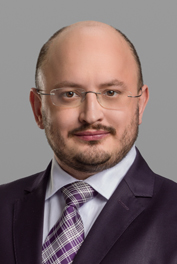Please note that the content below is more than three years old. Contact the author for an update.
20 Years of Russia’s Constitution
On December 12, 2013 the Russian constitution turned 20.
12.12.2013 | Сейчас.ру | Andrey Geu
The referendum of December 12, 1993 was a turning point on Russia's road toward a free and democratic future. The new constitution laid down the fundamental principles of a new system of government and proclaimed human and citizen rights and liberties.
Delivering his annual address to the Federal Assembly, Russia's President Vladimir Putin congratulated the Russians on the 20th anniversary of the constitution which helped the nation to overcome difficulties and form appropriate political, legal and social institutions.
To commemorate the 20th anniversary of the constitution, the Russian president also brought in an amnesty bill.
Shortly before Constitution Day, worried by the spreading disrespect of the law and constitution — such as discrimination of families with many children — law experts and general public returned to the discussion of constitutional reform.
Is there an urgent need to change anything in the 1993 Constitution? Also, why only 40% or the Russians know their constitution?
Our comment:
Andrey Tronin, INTELLECT-S, specially for online magazine Sejchas.ru:
Twenty years is not too much for a nation's fundamental law. But the twenty years that followed the adoption of Russia’s constitution were eventful enough to subtotal its operation, its significance to society and government, and people's attitude toward it.
From its adoption in 1993 until 2008, all constitutional amendments were merely "technica" and related to the federation member entities' "mergers and acquisitions" and reduction of their total number. But starting 2008, material changes began: the presidential term of office lengthened from four to six years; and the State Duma’s and the government's incumbency, from four to five years. Debate is still on about the new law reform that effectively abolishes the Higher Arbitrazh Court which tops the system of courts having the jurisdiction to try business-related cases. Considering that these were all presidential initiatives, it takes no political genius to realize that the very constitutional model of rule in Russia — with a distinct super-presidency above the three branches of government — has paved the way to these changes. One may argue ad infinitum whether the changes have been for the better of for the worse, if they are felicitous or inopportune, but the fundamental law's inherent stability — especially as the backdrop to the fast changing legislation — must underlie a stable, steady and strong progress of the nation and its government. It should be admitted with bitterness, yet again, that time was lost, and so was momentum.
Time has also revealed the latent elasticity of some important constitutional provisions. The rules which govern the federal structure of the state, for example, permitted the president to initiate, without amending the constitution, first to abolish popular gubernatorial elections, then to reinstate them.
The human rights and liberties are the cornerstone of any constitution. But the number of cases Russia has lost in the European Human Rights Court (EHRC) shows how ineffectively they are really protected in this country. The rights and liberties chapter of the Russian constitution owes itself to a large extent to the European Human Rights Convention, which, again, by operation of the constitution, applies and operates in Russia directly. The official attitude to the constitution, however, is seen in the official refusals to submit to and comply with EHRC's decisions on certain cases. In the meantime, most people in Russia are too busy earning their daily bread to worry or even think about the essence of such a lofty matter as the constitution. They perceive it as the public authority’s toy imposed from above to justify any decision. One may recall it only when driven into a corner and feeling that one is treated wrongfully, illegally and unconstitutionally. Therefore, on the day of anniversary I want to wish the public authority wisdom both in respect for the fundamental law and in educating society in respect for it.










